







| Green Iguana (Iguana iguana (Linnaeus, 1758)) |








|
|
Scientific name: Iguana iguana (Linnaeus, 1758) Common name: Green Iguana Other names: Common Iguana French name: Iguane vert, Iguane commun. Order: Squamata Suborder: Sauria Family: Iguanidae Size: Up to two metres long and ten kg. Males are larger than females. Habitat : Tropical forest at low altitude. The Green Iguana is often found in trees bordering rivers. Food: Omnivorous with a preference for plants, fruits and leaves. Juvenile Iguanas will more easily feed on insects, spiders, eggs and small vertebrates. Reproduction : The Green Iguana is oviparous. Females lay 20 to 70 eggs under the ground, once a year. Geographic area: Central America, The Caribbean, South America as far as southern Brazil. It has been introduced to the southern part of Florida, to the southern part of Texas and to Hawaii. |
The ground colour of the Green Iguana may vary depending of the geographical range. It becomes darker with age and gets dark stripes on the side of the body and on the tail. The tail is very long and can be 2/3 of the total length. It has a spiny dorsal crest and a dewlap (throat pouch) under the head. The dewlap is particularly developed on males. The four legs have long fingers and claws to help them climb on trees. The Lesser Antillean Iguana (Iguana delicatissima), a similar species which is in severe decline, is a little smaller and lacks the stripes on the tail. |
| [To know more about the Green Iguana] [Next picture] [Top] |
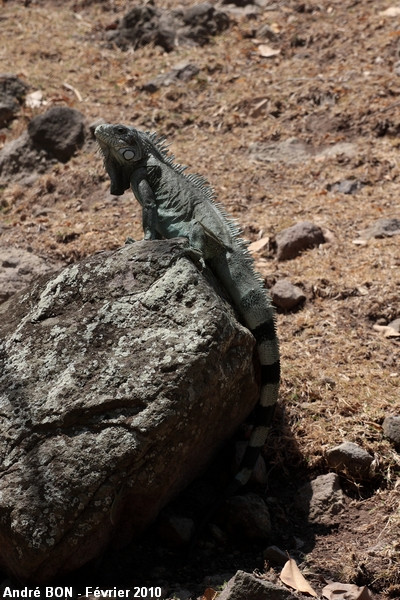
|
The Green Iguana is very common on Les saintes Islands. The dark stripes on the tail and the large size are reliable keys to the identification of the Green Iguana species. |
| [To know more about the Green Iguana] [Next picture] [Previous picture] [Top] |
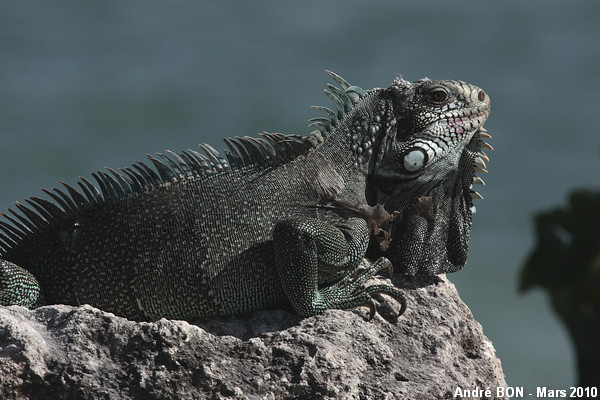
|
It seemed to me that Common Iguanas are widespread all over Guadeloupe. Here is one photographed when getting out of my car near the beach of Saint-Félix in Grande -Terre. |
| [To know more about the Green Iguana] [Next picture] [Previous picture] [Top] |
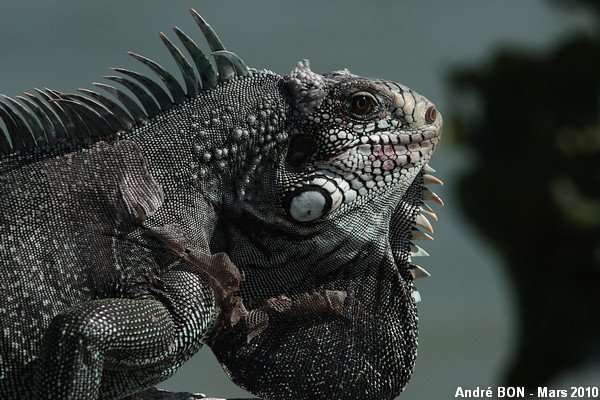
|
I walked a little too close. This Common Iguana does not fit inside the picture. |
| [To know more about the Green Iguana] [Next picture] [Previous picture] [Top] |
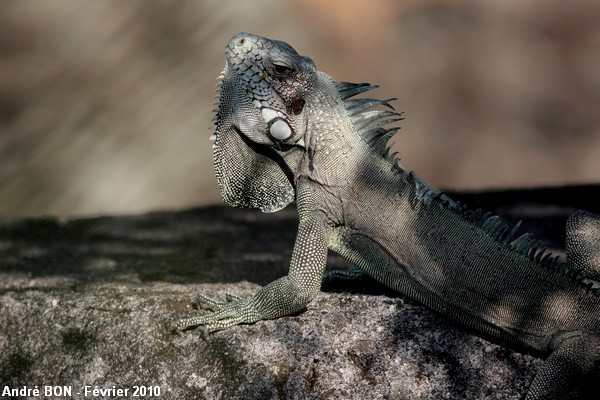
|
The head raised to display the dewlap seems a good mean to intimidate intruders. |
| [To know more about the Green Iguana] [Next picture] [Previous picture] [Top] |
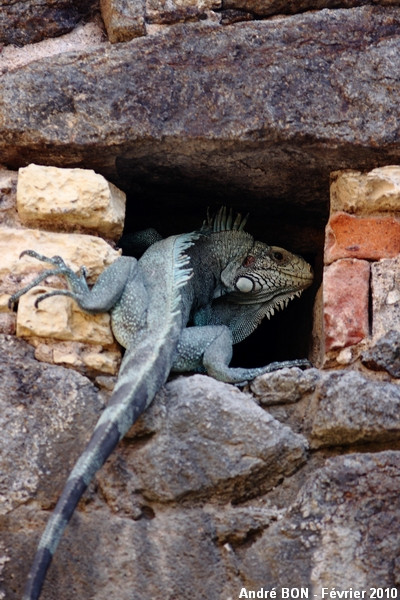
|
Fort Napoleon, at Les Saintes, has no longer any military use and Green Iguanas now use it as a resting place. |
| [To know more about the Green Iguana] [Next picture] [Previous picture] [Top] |
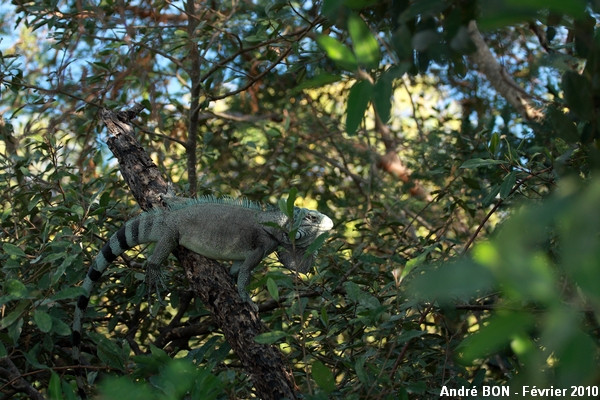
|
The Green Iguana is an arboreal species and you can often observe it on trees. |
| [To know more about the Green Iguana] [Next picture] [Previous picture] [Top] |
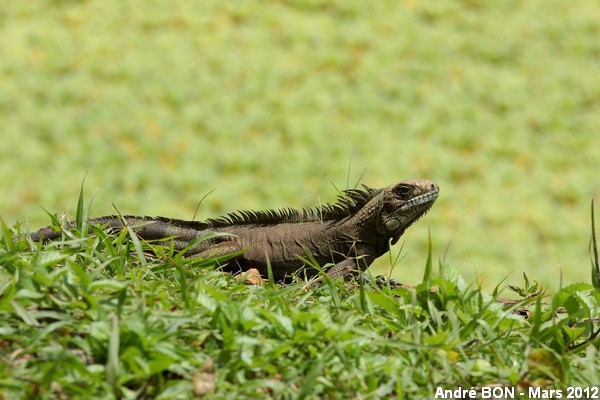
|
I shot this picture on the Îles du Salut (Islands of Salvation in English, in fact on the Île Royale). |
| [To know more about the Green Iguana] [Previous picture] [Top] |
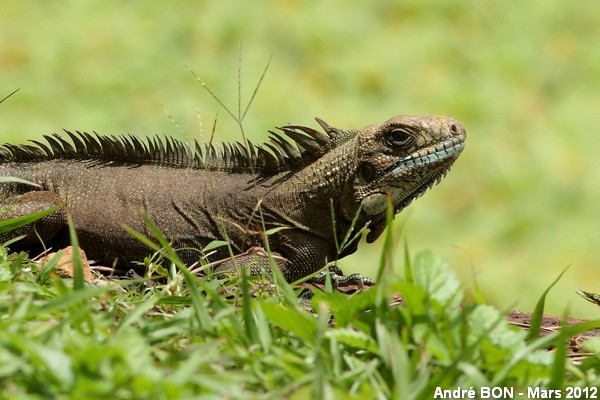
|
Observing these Green Iguanas has been rather easy on the Île Royale. Observing them among the dense vegetation of other places in French Guiana is another story … |